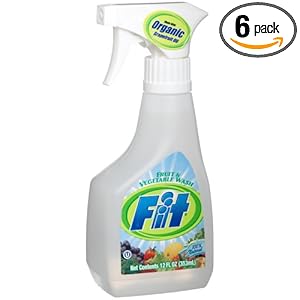Last week, at our annual summer family reunion, I was asked why I was I was washing the avocados before slicing them open to make guacamole. Washing all produce before cutting into it is a basic foundation of modern kitchen hygiene, but many people operate under the false assumption that fruits and vegetables with peels and rinds are exempt. This can be a dangerous mistake.
Bacteria, pathogens, pesticides, and grime can be carried by the knife blade from the skin and onto the flesh of your produce, contaminating the food you serve. As I’ve mentioned before regarding last summer’s listeria deaths from unwashed cantaloupes, washing the rind or peel before cutting into an item is the only way to prevent contamination of the flesh from the knife blade.
Even organic fruits and veggies should be washed first, preferably using a food-safe soap like Fit Veggie Wash or one you make yourself out of baking soda and vinegar or lemon juice, and then rinsed well.
Common produce items that people might mistakenly think are ok to skip washing include:
- Citrus fruits like lemons, limes, oranges, and grapefruits. Don’t overlook that lime wedge you’re squeezing and then dropping into your drink where it can transfer all of its contaminants to the liquid and into your body.
- Avocados
- Pineapples
- Melons
- Artichokes
- Winter squash (pumpkins, acorn, etc.)
- Bananas, when are sliced with a knife
- Kiwis
Don’t forget to wash your hands, too, after handling unwashed produce and before preparing your food, to avoid spreading any undesired contaminants into the rest of your food or household.
Can you think of any other fruits and veggies that people routinely think are safe to cut into without washing first?


